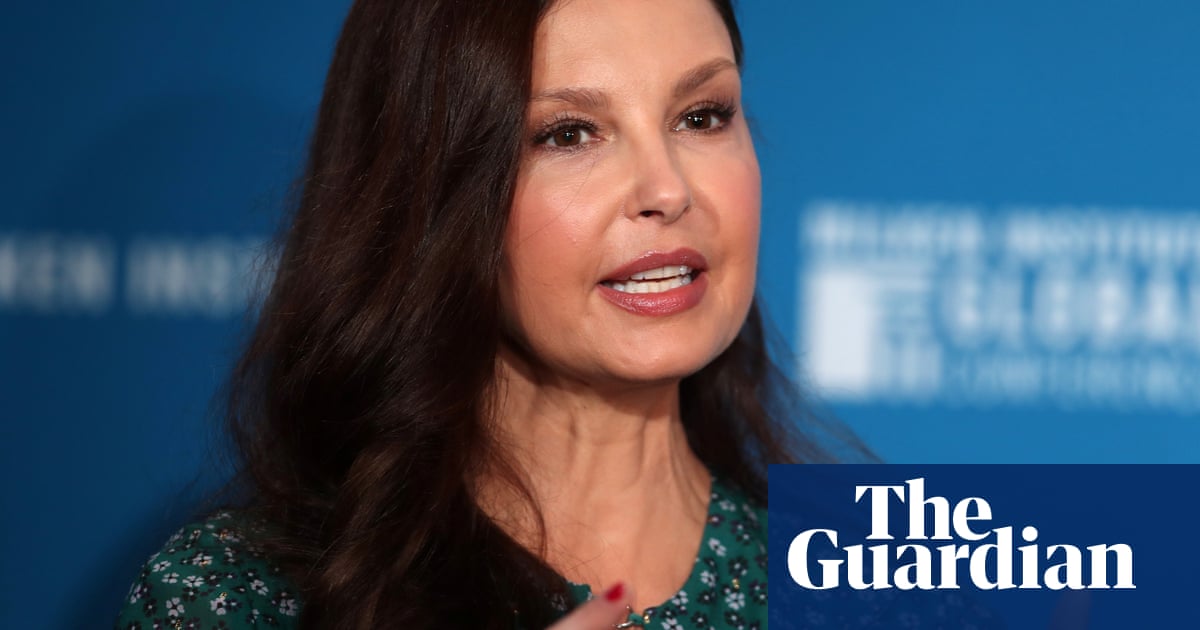Ashley Juddhas delivered her most complete account yet of the heart-wrenching moments during which she personally discovered hermother’s suicide in 2022– and sought to ensure her parent let go of “her guilt and her shame” over what she had done at the conclusion of a long struggle with depression.
“I … told her how much I loved her, and it’s OK to go,” the actor said on The Judd Family: Truth Be Told.
The documentary miniseries – having aired on Lifetime over Mother’s Day weekend and now available on the Philo streaming service – in part zoomed in on Grammy-winning country singerNaomi Judd’s final day, which began with a text message from her to Ashley reading: “pls help.”
As Ashley recounted on the docuseries, she subsequently arrived at her mother’s home near Nashville and found 76-year-old Naomi “uncomfortable in her body” – pacing around her kitchen while saying that she “didn’t want to be here any more”.
The Double Jeopardy and Kiss the Girls star recalled: “I put my hand on her leg and she patted me and she slowly softened and came back to herself and calmed down and shared a couple of things I would say are private, between us, about why she chose to continue to live” in spite of her lengthy history of anxiety, depression and bipolar disorder.
“One of the things she said was me, and I said: ‘You don’t have to worry about me, Mom. I’m OK. I’m OK.’ And she really clocked that in a really deep way.”
Naomi then went upstairs. Ashley said she later followed to check on her mother and “saw that she had harmed herself”.
“I spent the next whatever it was – half-hour – just holding my mother and talking to her,” Ashley said on the program. “And the first thing I said to her was: ‘It’s OK, I’ve seen how much you’ve been suffering.’
“And we just breathed together, and I talked to her and told her how much I loved her, and it’s OK to go.”
Ashley continued: “When she died, my earnest wish was to make sure that she was relieved and absolved of her guilt and her shame. I was holding her hand. I was kissing her. She was so soft. She smelled so pretty.
“It was like this final consummation of the love in the relationship that we had transformed. What an honor, to be born in this human life, to be chosen by her. I got to hold space – I got to bookend. And I’m just so glad I was there.”
Ashley Juddspoke to the Guardianin early 2023 about undergoing a physically and mentally taxing type of psychotherapy known asEMDR– which involves patients moving their eyes in a specific way while they process traumatic memories – as she grappled with the aftermath of her mother’s death.
She said her treatment was made more complicated than it otherwise could have been by the fact that a tabloid published graphic photographs depicting the scene of Naomi’s death. The outlet also ran a photo of a Post-it note at the scene suggesting that Naomi’s other daughter – fellow country singer Wynonna, Ashley’s sister – would not be allowed at the funeral, though she ultimately did attend.
Those pieces violated standards on how to safely and responsibly report on deaths like that of Naomi, the American Foundation for Suicide Prevention said at the time.
Nonetheless, the tabloid ran that material after outlets obtained it through public records requests issued to the first responders who were called out to the site of Naomi’s death.
Naomi Judd’s daughters and her widower, the former Elvis Presley-backing vocalist Larry Strickland, laterpushed for Tennessee’s state legislatureto limit what authorities should have to release in non-criminal deaths. The restrictions they proposed were relatively similar to ones in place in California and Florida, which are generally considered to be public records-friendly.
A statement on Tuesday from Judd family representatives said that effort “effectively died” after the legislature’s attention became occupied by a shooting that killed three nine-year-old children and three adults at Nashville’s Covenant school in March 2023. The attacker who carried out the slayings at the school was killed by police, too.
Born Diana Ellen Judd in Ashland, Kentucky, Naomi Judd was working as a nurse before she and Wynonna began to sing together. Their blending of acoustic music, bluegrass and blues earned them a devoted following. And it also propelled the duo to 14 No 1 hits and five Grammy wins over nearly three decades performing.
Unfortunately for her, in 1991, at the peak of her and Wynonna’s popularity, Naomi Judd was diagnosed with hepatitis. She said she was forced to stop performing, and her mental state deteriorated significantly before dying one day away from being inducted alongside Wynonna into theCountryMusic Hall of Fame in Nashville.
“Our matriarch was dogged by an unfair foe,” the Judd family had previously said in a statement.
In the US, you can call or text theNational Suicide Prevention Lifelineat 988, chat on988lifeline.org, ortext HOMEto 741741 to connect with a crisis counselor. In the UK and Ireland,Samaritanscan be contacted on freephone 116 123, or emailjo@samaritans.orgorjo@samaritans.ie. In Australia, the crisis support serviceLifelineis 13 11 14. Other international helplines can be found atbefrienders.org
